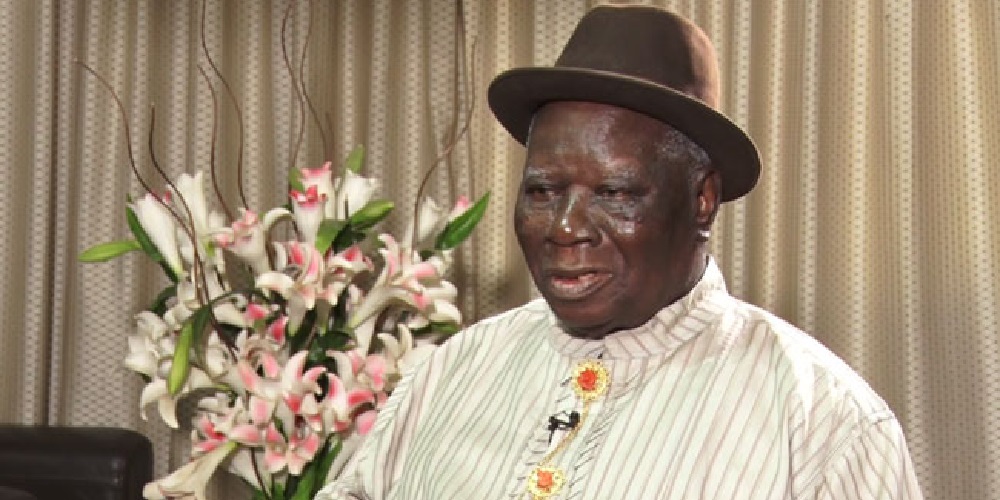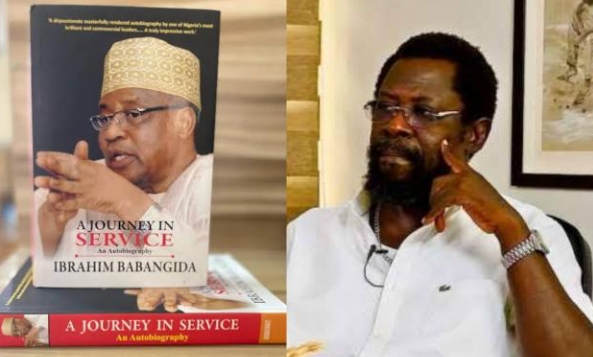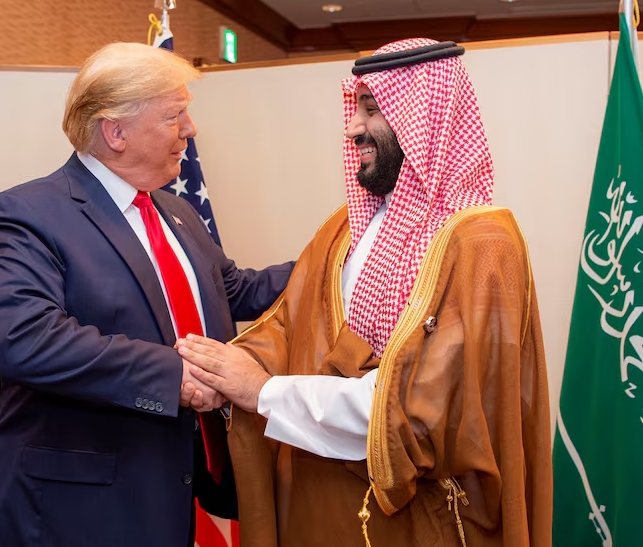News
Buhari did everything to subjugate Igbos, says Edwin Clark

The leader of the Ijaw Nation, Chief Edwin Clark, says former President Muhammadu Buhari did everything to subjugate Igbos from the South-Eastern part of Nigeria for reasons best known to him, noting that Buhari excluded the southeast from some of his appointments during his time in office.
Clark stated this in a letter to President Bola Tinubu, where he also pointed out that Buhari did not appoint anyone from the s
South East in his constitution of the Board of the Nigeria National Petroleum Corporation, even though the region had three oil-producing states including Abia, Anambra and Imo States.
He further recalled how Buhari allocated less than 1% of a $22.7bn loan to the South East zone, while others received higher percentages, adding that the former President also failed to appoint service chiefs from the region.
“President Buhari did everything to subjugate the Igbos for reason best known to him. Perhaps it may be necessary to cite some examples; the NNPC board which he constituted when he came into office had 9 members, 1 from the South-West, 1 from South-South, and no member from the South-East, even though 3 South-East states; Abia, Anambra and Imo are oil producing states; the remaining members including his Chief of State came from the North, a non-oil producing region.
“However, he later tried to amend it when he appointed Sen Ifeanyi Ararome as chairman of the second board; and he later replaced him with Margery Chuba-Okadigbo before he took office. He (Senator Ifeanyi Ararome) took the matter to court and won but the situation has not changed.
“Also, when President Buhari attempted to obtain loans from foreign financial institutions that exceeded 30% of the GDP which was not in the interest of the country; and the loan of $22.7 billion (USD), of which less than 1% of the amount was to be allocated to the South-East zone while other zones were allocated higher percentage for infrastructural projects, is a violation of the constitutional requirement to ensure a balanced economic development of Nigeria in accordance with President Buhari’s Oath of Office. In President Buhari’s 17-man security chiefs, 14 of them came from the North and only 3 from the South excluding the Igbos from the South East,” the letter read.
Clark also stated that the “discrimination and injustice” against the Igbo had not abated under Tinubu’s administration, noting that while he (Tinubu) appointed 10 ministers from the Southwestern region, only six had been appointed from the South, adding that there was no justification for the omission.
“Mr President, even in your administration, the discrimination and injustice against the Igbos has not abated. The old Eastern Region and the old Western Region, to which I belonged, were equal competitors and partners before and during the First and Second Republic but today, you have appointed 10 Yorubas as Ministers from the South-West, and only five (5) Ministers from the South-East, and you even failed to give them the ministerial appointment due to their region that would have made it six (6) Ministers. There is no justification for this grave omission and no effort has been made to correct it,” he added.
The elder statesman, therefore, called on the President to immediately restructure the country if the nation was to remain one. He also called for the implementation of the 600 recommendations of the 2014 National Conference Report, and for the Igbos to stand up and legitimately assert their rights.
“Now that the elections are over, we must face the restructuring of this country. I repeat the immediate restructuring of Nigeria must be carried out if this country is to remain one, and I appeal to Mr President to take immediate action to implement the historic 2014 National Conference Report which submitted 600 recommendations to the Presidency on how to restructure Nigeria in every aspect of our lives.
“The Igbos of Southeast or wherever they are in Nigeria, must stand up and assert their rights legitimately, judiciously and in a democratic way, to benefit like any other Nigerian as it was before the civil war of 1967”.
News
Saudi Arabia donates 100 tonnes of dates to Nigeria as fasting approaches

By Kayode Sanni-Arewa
The Embassy of the Kingdom of Saudi Arabia in Abuja has held an official ceremony to distribute 100 tonnes (100,000kg) of dates to Nigeria as part of its annual humanitarian relief efforts.
The initiative, facilitated by the King Salman Humanitarian Aid and Relief Centre (KSrelief), aims to support vulnerable families across the country and strengthen the deep-rooted ties between the two nations.
During the ceremony, the Ambassador of the Custodian of the Two Holy Mosques to Nigeria, Faisal bin Ibrahim, conveyed the Kingdom’s dedication to humanitarian causes.
He expressed his profound gratitude to King Salman bin Abdulaziz and Crown Prince Mohammed bin Salman for their unwavering support in providing aid to Muslims and underserved communities worldwide.
He emphasised that Saudi Arabia remains steadfast in its commitment to fostering Islamic solidarity and providing relief to those in need.
Mr Al-Ghamdi explained that this year’s distribution includes 50 tonnes of dates for Abuja and another 50 tonnes for Kano, continuing Saudi Arabia’s tradition of assisting Nigeria through humanitarian donations.
He noted that the initiative represents the Kingdom’s broader mission to uplift Muslim communities, alleviate suffering, and promote unity, particularly during significant religious periods such as Ramadan.
The embassy, in collaboration with local authorities and humanitarian organisations, will ensure the proper distribution of the dates so that they reach the most vulnerable families in various regions of Nigeria
Saudi Arabia has been a longstanding partner in providing humanitarian aid to nations across the globe, including Nigeria. The Kingdom’s continued efforts in supporting food security and welfare initiatives exemplify its role as a global leader in charitable and humanitarian endeavours.
Through Vision 2030, Saudi Arabia seeks to expand its contributions to international humanitarian causes, reinforcing its dedication to fostering peace, stability, and prosperity worldwide. The ongoing provision of aid to Nigeria is a testament to these commitments and highlights the decades-long partnership between the two brotherly nations.
News
Babangida’s Book is filled with distorted facts, collection of lies, says Dele Farotimi

By Kayode Sanni-Arewa
Dele Farotimi, a human rights lawyer, has launched a heavy attack on former dictator Gen. Ibrahim Babangida (retd.), describing his reign as “ruinous”.
Farotimi, who lived through Babangida’s rule, recounted his experiences as a participant in the fight against the former leader’s “evil actions and inactions
Farotimi’s comments come after Babangida’s recent admission that Chief M.K.O. Abiola won the 1993 presidential election, which Babangida annulled.
The human rights lawyer expressed his disappointment, but not surprise, at the “mixed bag of lies, half-truths, urban legends, and obfuscations” in Babangida’s recent statements.
Farotimi’s criticism is not isolated, as many Nigerians have questioned Babangida’s legacy and the lack of consequences for his actions. The annulment of the 1993 election led to widespread protests and a prolonged struggle for democracy in Nigeria.
In a statement, Farotimi concluded, “No hagiographic allocutus can redeem the Evil Genius of Minna”.
The statement was shared on X while he was reacting to a comment made by Adnan Abdullahi Adam, which stated that “it’s better to read every side of exposition before forming your own judgement”.
With the cover picture of the IBB’s memoir “A Journey In Service” @realadnantweet wrote:
“I think IBB’s memoir: “A Journey in Service” exposes a fresh perspective on everything.
“It’s better to read every side of exposition before forming your own judgement.
“Everyone should try reading the book as jury to the plea of the accused.”
Responding Farotimi wrote: “I lived through his ruinous reign. I wasn’t a passive victim of his evil actions and inactions, I was a participant in the fight to be freed of him.
“I am painfully aware of the extent of his evil capabilities, and I have not been disappointed by the mixed bag of lies, half truths, urban legends, and obfuscations contained in the excerpts already in the public domain. No hagiographic allocutus can redeem the Evil Genius of Minna.”
On Thursday, February 20, 2025, former Nigerian military ruler General Ibrahim Badamasi Babangida (IBB) released his long-anticipated autobiography, “A Journey in Service.”
The memoir has ignited a firestorm of controversy, with critics accusing Babangida of distorting historical events and maligning deceased individuals who cannot defend themselves.
This development has reopened debates about his tenure and its lasting impact on Nigeria’s political and economic landscape.
Babangida’s tenure from 1985 to 1993 was marked by the implementation of the Structural Adjustment Programme (SAP), among others. In “A Journey in Service,” he provides an insider’s perspective on the adoption of SAP, aiming to offer context for the controversial policy that aimed to liberalize Nigeria’s economy.
While intended to address economic challenges, SAP led to widespread protests and debates due to its harsh austerity measures and the social hardships it imposed.
Critics, however, contend that Babangida’s memoir serves as a self-exoneration tool, selectively presenting events to absolve himself of blame.
Human rights lawyer and former Chairman of the Nigerian Human Rights Commission, Prof. Chidi Odinkalu, described the book as a “pack of lies,” accusing Babangida of making allegations against deceased individuals who cannot contest his claims.
Odinkalu further criticized Babangida for portraying himself as a victim of circumstances orchestrated by those who are no longer alive to defend themselves.
The memoir has also rekindled discussions about Babangida’s annulment of the June 12, 1993, presidential election, widely regarded as one of Nigeria’s freest and fairest elections. In the book, Babangida attempts to justify the annulment, a move that plunged the nation into political turmoil and prolonged military rule. Many Nigerians view this action as a significant setback to the country’s democratic progress.
News
Saudi Arabia plans to invest $600bn in new US trade over 4 years

By Kayode Sanni-Arewa
Saudi Arabian Crown Prince Mohammed bin Salman told President Donald Trump that the kingdom wants to put $600 billion into expanded investment and trade with the United States over the next four years, the Saudi State news agency said early on Thursday.
In a phone call between the two leaders, the crown prince said the Trump administration’s expected reforms could create “unprecedented economic prosperity”, the state news agency reported.
The report said Saudi Arabia wants its investments to capitalize on these conditions. It did not detail the source of the $600 billion, whether it would be public or private spending nor how the money would be deployed.
The investment “could increase further if additional opportunities arise”, the agency quoted Bin Salman as telling Trump.
Trump fostered close ties with Gulf states including Saudi Arabia during his first term. The country invested $2 billion in a firm formed by Jared Kushner, Trump’s son-in-law and former aide, after Trump left office.
Trump said following his inauguration on Monday that he would consider making Saudi Arabia his first destination for a foreign visit if Riyadh agreed to buy $500 billion worth of American products, similar to what he did in his first term.
“I did it with Saudi Arabia last time because they agreed to buy $450 billion worth of our product. I said I’ll do it but you have to buy American product, and they agreed to do that,” Trump said, referring to his 2017 visit to the Gulf kingdom.
The Reuters Daily Briefing newsletter provides all the news you need to start your day. Sign up here.
Reporting by Hatem Maher; Editing by Leslie Adler and Cynthia Osterman
-

 News23 hours ago
News23 hours agoJust in : Senator Gumau is dead
-

 Metro16 hours ago
Metro16 hours agoInsecurity! Gunmen invade church, slash pastor’s 2 fingers
-

 News22 hours ago
News22 hours agoI have never insulted President Tinubu in my entire life”-Gov Adeleke
-

 News22 hours ago
News22 hours agoPolice seal OSSIEC office, officials nabbed, says chairman
-

 News24 hours ago
News24 hours ago10th NASS Committed to Constitutional Reforms – Kalu
-

 News23 hours ago
News23 hours agoRep Salam Congratulates Governor Adeleke On Successful Conduct Of LG Elections
-

 Metro16 hours ago
Metro16 hours agoFire engulfs MTN office in Oyo
-

 Foreign15 hours ago
Foreign15 hours agoPentagon set to sack 5400 staff as attack hits Trump’s downsizing plan







